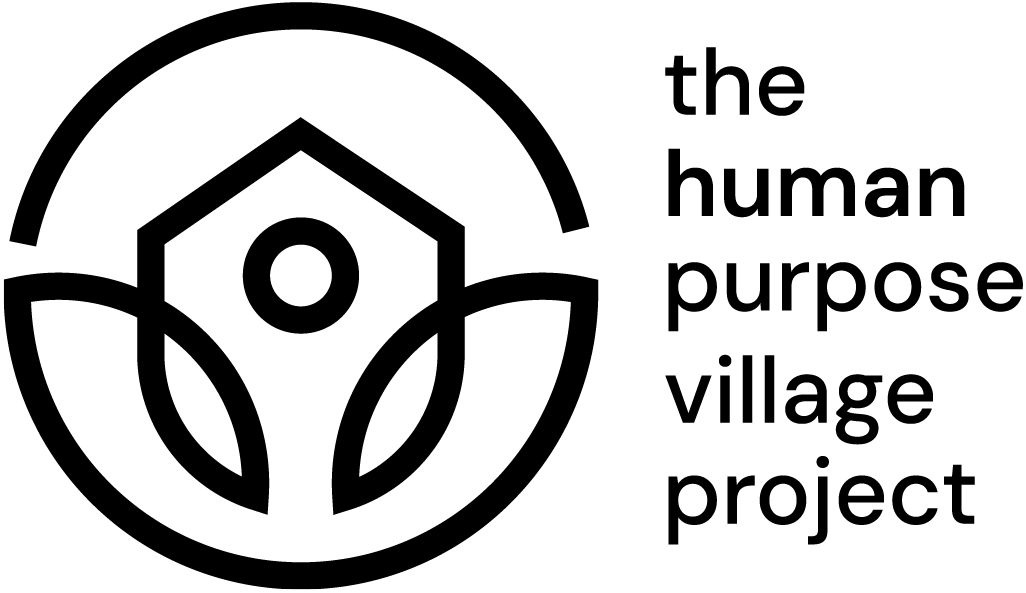Outline of the Human Purpose Village Academy
- Today we need meaning. Purpose
- We need material and virtual places of encounter. Villages
- We need pioneers and boundary crossers from the natural sciences and humanities, business, technology, politics, culture and art to come together and work together to find new ways of shaping the future. Academy
A look back
Plato’s “Academy”, located in a grove outside Athens and named after the hero Akademos, lasted for almost 1000 years. It was a school of philosophy in nature, where a community of scholars reflected on the challenges and questions that humanity is facing today, even more urgently:
- Who are we?
- Where do we come from?
- What are we putting ourselves through?
- What should we do?
- What is our goal?

Starting points and basics
Defense and recognition are the basic patterns for the cause and resolution of conflicts in all areas of society. Research project and methodology, investigated and developed by Dr. Barbara Strohschein, philosopher and psychologist.
The Human Purpose Village Project is the vision and concept for a redesign of material and immaterial human living conditions, embedded in the planetary biosphere and based on a common human value foundation and narrative, or a newly formulated ontology. Created by Giò von Beust, visionary, artist, serial entrepreneur, lawyer and banker.
Purpose Magazine is the online and print publication for meaningfulness, value formation, sustainability and the common good, conceived and realized by publisher and editor-in-chief Dr. Hans Christian Meiser, philosopher, humanities and cultural scientist, publicist, in cooperation with the private bank Donner & Reuschel and Journal International, The Home of Content.

Current crises and challenges
- Outdated and no longer sustainable patterns of thought and action lead to crises, stagnation and wars.
- Disorientation, ideologization and a lack of knowledge contribute to uncertainty. This leads to a loss of meaning and misconceptions about social and ecological processes among the population and decision-makers in politics and business alike.
- Globalized industrial civilization and global supply chain structures have led to the overexploitation of natural biological resources and are destroying the livelihoods of future generations.
The resulting climate change is recognized on the one hand, but on the other hand, it is being fended off. This leads to an overestimation of the possibilities of getting it under control technologically and to an inconsistency in dealing with it. - The supremacy of the West and Western culture is a thing of the pastOhmac. The geopolitical power blocs are forming new, unpredictable alliances. International negotiations are infected by feelings of powerlessness, lost positioning and helplessness.
- Collectively and individually, resignation and fear are the subliminal reasons for blockages and prevent a spirit of optimism to tackle the “meta-crisis”. Dystopian ideas dominate public and private opinion, while positive utopias and long-term design proposals are almost non-existent.
- Education is defined as a social performance mandate, but not as an important aspect of personal growth which is the basis of maintaining a stable social culture.
- Technologies are developed without taking into account the negative consequences for the environment and people, driven with the idea that technology will solve all problems in some future.
- The human factor, human needs, motives, feelings and communication options are underestimated or not recognized at all in political and economic decision-making processes.

Goals of the Academy and ideas for implementation
Re 1: In general, the foundations must be laid for a new development of consciousness and a new understanding of reality.
Through workshops, consultations, meetings, congresses, lectures and research projects, an interdisciplinary dialog between philosophy, psychology, biology, physics and technology is used to develop a toolbox for implementation.
Re 2: Providing orientation by imparting knowledge, formulating values and creating meaning, developing strategies for a coherent shaping of reality.
Overarching and future-oriented discourses between experts from science, technology, business, culture and the arts are required to develop and implement project ideas. Human Purpose Villages serve as research stations/platforms and develop models for new communal, meaningful, knowledge- and value-based social structures.
Re 3: Conceptual development and research support for the Human Purpose Villages to be built globally in urban and rural environments and the network connecting them.
Through a 7-generation perspective, Human Purpose Villages act as cells for the regeneration of the biosphere and climate as well as the renewal of human habitats and meaning.
Through mindful embedding in given ecological systems, through circular economy architectures and consumption systems of natural resources as well as cosmo-local economies and novel, AI-supported distribution and supply chain systems, a future small-scale, cellular civilization of semi-autonomous, robust, climate-resilient villages/living spaces connected via a global resource network will emerge.
Re 4: Information and exchange with other cultures/nations and reflections on the relevance of Europe.
Through international transdisciplinary conferences in which the human sciences are linked to political, ecological and economic projects in order to anticipate the impact of global decisions on humanity.
Re 5: Generally create an atmosphere of recognition and encouragement in discussions, projects and meetings.
Through commitments in teams, through supervision and through recognition workshops.
Re 6: Develop educational and communication opportunities for young people that take into account all aspects of human development.
By imparting knowledge, fostering imagination and creativity, by conveying experiences of recognition, by promoting linguistic and artistic forms of expression.
Re 7: Place technologies and technology development in a human-oriented context. Through projects in which technology experts work together with psychologists, philosophers and human scientists to develop and test concepts and strategies for human-centered AI development.
Re 8: Create discourse forums for a new political education that takes into account the physical and psychological factors that influence the decisions of decision-makers.
Through seminars and communication offers for the further training of prospective politicians, in which the defense mechanisms and recognition modalities are conveyed.

Text: Dr. Barbara Strohschein / Giò von Beust / Dr. Hans Christian Meiser
Giò von Beust
Giò Beust is a visionary, artist and "world-saving activist". As a banker, lawyer and consultant, he draws on his experience as a book publisher, serial entrepreneur, author and world traveller, among other things. His philosophical thinking revolves around two questions: What is reality? What does it mean to be human?







